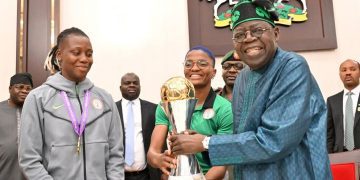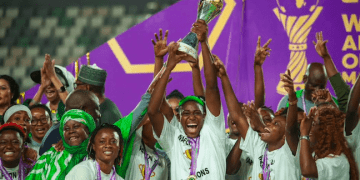Barrister Ejiofor’s claim that Chief Nwangwu’s questioning is politically motivated is speculative and unsubstantiated. The government’s duty is to maintain law and order, irrespective of political considerations. No evidence has been presented to show that his questioning is linked to the 2025 Anambra gubernatorial election
By Hillary E. Azegba
It is imperative to correct the misleading assertions made by Barrister Ifeanyi Ejiofor regarding the questioning of Chief Chidozie Nwangwu, alias Akwa Okuko Tiwara Aku, by the Anambra State Government. While the fundamental rights to freedom of religion and expression are enshrined in the 1999 Constitution of the Federal Republic of Nigeria (as amended), such rights are not absolute and must be exercised within the bounds of the law, public safety, and morality.
While Section 38 of the Constitution guarantees the right to freedom of religion, subsection 4 of the same provision clearly states that this right does not extend to acts that threaten public safety, order, health, or morality. The Nigerian courts have consistently held that the government has a legitimate interest in regulating religious practices that may endanger public peace.
Furthermore, Section 45 of the 1999 Constitution provides that the government may restrict fundamental rights in the interest of public safety, order, or morality. The government has a duty to investigate activities that raise security concerns, especially in light of increasing reports linking certain mystical practices to criminal activities such as ritual killings, disappearances, and financial fraud (popularly called Yahoo Plus).
The government is well within its rights to investigate individuals whose public statements or activities generate reasonable suspicion of illegality. Until the investigation proves otherwise, no one can claim his rights have been violated
Anambra State, like the rest of Nigeria, operates under a legal system where traditional and religious practices must conform to statutory and constitutional provisions. Under Sections 210 and 214 of the Criminal Code Act, any act that promotes, engages in, or supports criminal ritual activities, occultic sacrifices, or harmful fetish practices is subject to legal scrutiny.
The Supreme Court of Nigeria, in Obayemi v. The State (2021) 12 NWLR (Pt. 1789) 343, upheld the conviction of individuals involved in fetish practices that led to harm, emphasizing that cultural or religious beliefs do not provide a defense for illegal acts.
Chief Chidozie Nwangwu’s statements in the viral video, wherein he allegedly spoke about preparing Okeite, a substance linked to esoteric practices, naturally raised public concerns. Whether or not he shared the video himself is immaterial, as criminal investigations are not solely based on ownership of media content but on the nature of the statements and their potential implications.
The police and security agencies have a duty to investigate individuals whose activities raise suspicions of criminality, especially in an era where ritual-related crimes are on the rise. The questioning of Chief Nwangwu is not a violation of his rights but a necessary step in maintaining public confidence in law enforcement.
Nigerian courts have upheld the government’s power to question individuals suspected of engaging in activities detrimental to public peace.
In Eze v. The State (2019) LPELR-48031(SC), the Supreme Court affirmed that where an individual’s religious or cultural activities raise reasonable suspicion of illegality, law enforcement agencies have the right to investigate and, where necessary, prosecute.
In Olisa v. Commissioner of Police (2020) 15 NWLR (Pt. 1748) 287, the Court of Appeal held that the right to religious practice does not extend to acts that threaten public safety or order.
Barrister Ejiofor’s claim that Chief Nwangwu’s questioning is politically motivated is speculative and unsubstantiated. The government’s duty is to maintain law and order, irrespective of political considerations. No evidence has been presented to show that his questioning is linked to the 2025 Anambra gubernatorial election.
Conclusion
The invitation and subsequent questioning of Chief Chidozie Nwangwu by the Anambra State Government and security agencies do not constitute an infringement on his fundamental rights. Rather, they are necessary actions taken in the interest of public order, safety, and morality, as permitted under Sections 38(4), 45, and 210 of the Criminal Code.
The government is well within its rights to investigate individuals whose public statements or activities generate reasonable suspicion of illegality. Until the investigation proves otherwise, no one can claim his rights have been violated.
Let the law take its course.
•Barr. Hillary Ezeanochie Azegba
Legal Analyst & Advocate for Good Governance writes from Abuja Nigeria.
•Opinions, positions or thoughts expressed here are personal and strictly of the writer/author and not The Daily Crucible.









































